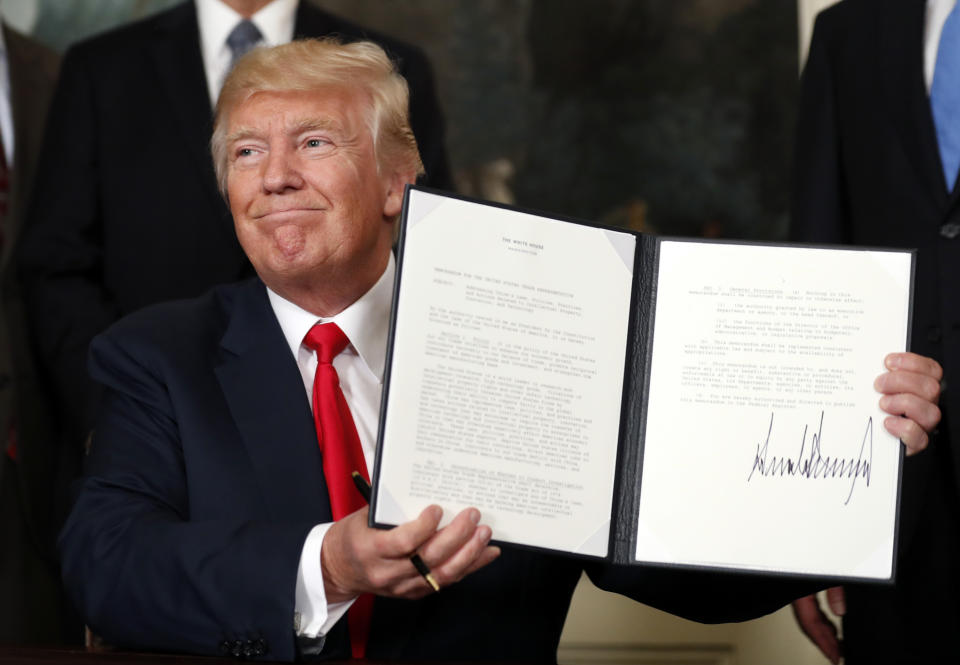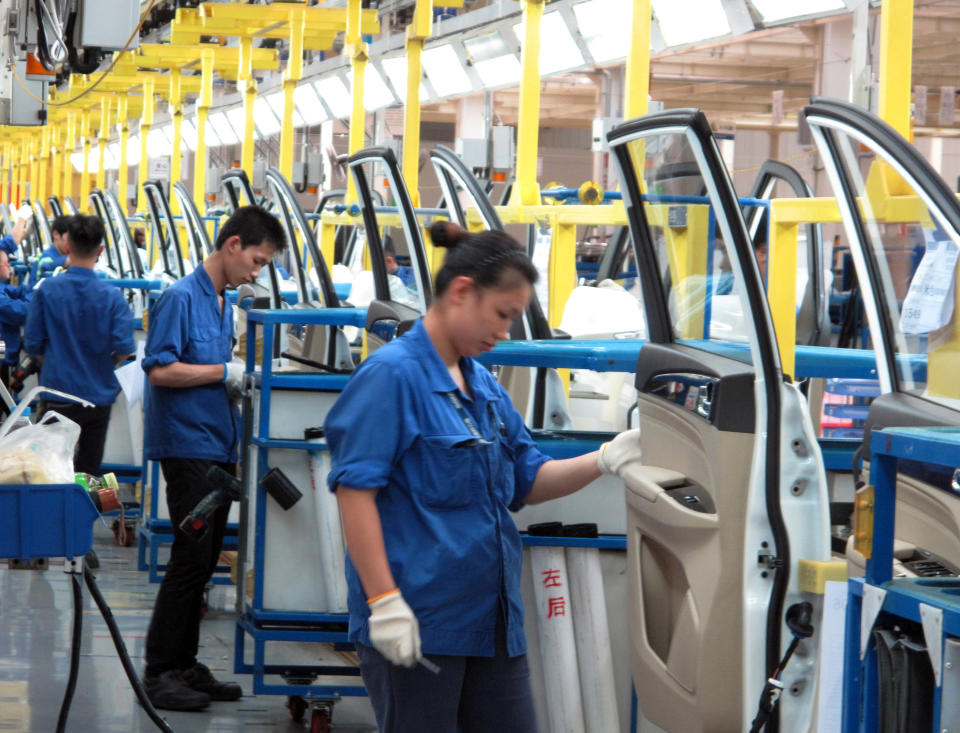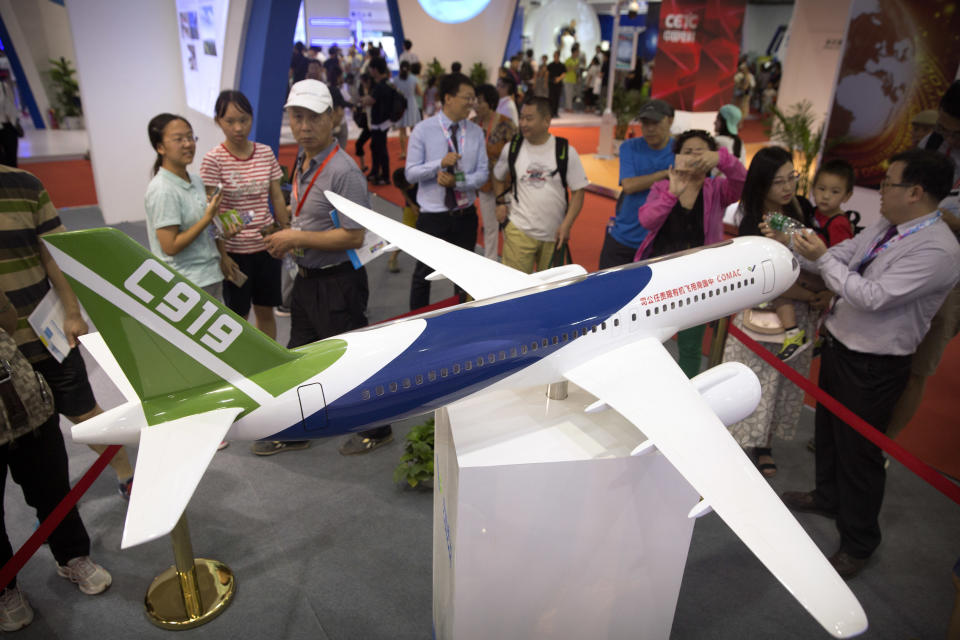Why it will be hard for Trump to stop China’s alleged intellectual property theft

President Donald Trump authorized an inquiry on Monday into China’s alleged theft of American technology and intellectual property, a problem US companies have faced for decades when they do business in China.
The inquiry will look at China’s practice of mandating that foreign companies partner with local firms. In the course of those partnerships, companies often feel pressure to give their intellectual property to Chinese firms, the US Trade Representative wrote in a January report.
But giving up some of intellectual property to local Chinese companies may be the cost of doing business in China, which is quickly becoming a technology powerhouse. Moreover, rules set by World Trade Organization (WTO) rules give China wide latitude in restricting foreign investment, which may complicate any potential investigation by the Trump administration.
Entering the Chinese market comes with risks

For US companies, gaining access to the world’s second-largest consumer market comes with risks. As a condition of operating in China or gaining a more favorable market presence, foreign companies may need to operate with local partners.
By doing so, US companies can take advantage of low production costs and local expertise, but may be coerced into sharing their intellectual property, as the Department of Commerce has warned.
Douglas Clark, a Hong Kong-based intellectual-property lawyer, thinks foreign companies are not usually “forced” to hand over their intellectual property. “But if you want to do business or invest in China, you’re encouraged to transfer technology,” Clark said. “There are certain calculations you make. It’s always a cost-benefit calculation for every company.”
Though it’s a company’s own call to do business in China or not, some argue market access shouldn’t be contingent on transferring technology.
For certain industries like airplanes and automobiles, the Chinese government has been clear on requiring foreign companies to form joint ventures with local firms, due to concerns over national security and the desire to have foreign partners use advanced technologies and management practices.
Take China’s fast-growing automotive industry. Back in 1980s when automobiles were nascent in China, officials directed foreign carmakers such as General Motors Co. (GM), Toyota Motor Corp. (TM) and Volkswagen AG to form joint ventures with locals and capped foreign investment at 50%.
More recently, the high-tech industry has become the main battlefield for China and US competition. To capture market share and gain favor from the local government, American tech giants like Intel (INTC) Qualcomm (QCOM) partnered with local chipmakers. The tradeoff is to support Chinese companies with chip development and design.
China is on its way to becoming an innovation powerhouse

If the WTO ends up taking a look at Trump’s allegations of intellectual-property theft, China can fight back, as The New York Times has reported. Under special rules negotiated with the WTO, China enjoys relatively broad rights to restrict market access as a developing country.
And the US agreed to these rules. Nicholas Lardy, a trade expert, told The New York Times that the US dropped the ball when negotiating the deal back in 2001 as “they didn’t think China was very important.”
US trade negotiators didn’t anticipate China’s ambition back then. However, these days, China has been doubling down on “indigenous innovation” and aims to be the world’s technology powerhouse by 2020.
Back in 2010, McKinsey & Company suggested that companies safeguard their intellectual property by “bringing only older technology to China.” But it’s becoming harder to go that route, as local players in China become more competitive and as Chinese consumers grow to expect up-to-date technology.
China may also have a growing interest of its own in protecting intellectual property in the country. Last year, Chinese telecom giants ZTE and Huawei filed the most patents in the world. The World Intellectual Property Organization projects that within two years, China will overtake the US as the largest international patent filer.
“It is in China’s long-term economic interest to improve protection of IP in China, so this will eventually happen irrespective of any possible Section 301 or WTO actions by the US,” Stephen Creskoff, an international trade consultant, told Yahoo Finance.
Krystal Hu is a reporter at Yahoo Finance. Follow her on Twitter
Read more:
Alibaba wants to be more than the Amazon of China
One Quote from Jack Ma sums up a huge shift in China’s economy
Why Uber had to abandon 2 big international markets — Russia and China
